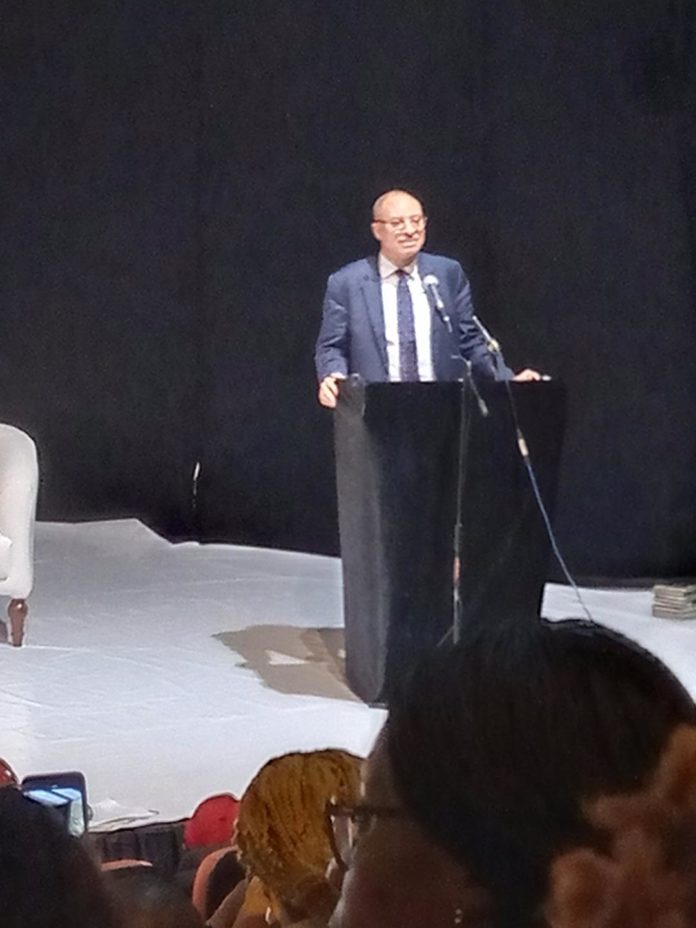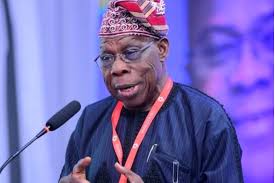By Ishaya Ibrahim
Professor of political economy, Pat Utomi, has said that the then head of state, General Yakubu Gowon, was unaware of the massacre of Igbo people in Asaba by Nigeria’s federal forces during the 30 months old civil war.
Utomi made the remark at an event to mark the end of the Nigeria civil war 50 years ago. The event was organised by Nzuko Umunna and Ndigbo Lagos.
“When the military entered Asaba and people in Asaba were being killed for exercise, the people of Asaba got together to show the military that you are warmly welcome. So, in their finest white attire, they came out to dance to welcome the troops.
“The women were ordered to this side, and the men were ordered to this side.
“And they opened fire on the men. Thousands were killed. A friend of mine survived that by playing dead under the weight of the body of his father and brother. He was lying underneath them.
“Now, this story is not meant to make anybody get upset but to say that if you don’t deal with those kind of things…
“In a chat with General Gowon, I speak very frequently with General Gowon. He was in Asaba a few weeks ago and the issue was raised again. It was the third time he was in Asaba that the issue was raised. And General Gowon, I don’t know if he would like me to say this but…May be I shouldn’t. Anyway, he really did not know what happened in Asaba,” Utomi said.
The Asaba massacre was one of the goriest episode of the war. It happened in August 1967, three months into the Biafran War.
Federal troops reportedly engaged in the masacre as a punitive measure for the residents of Asaba whom they accused of aiding the Biafran troops who advanced from that sector up to Ore, in today’s Ondo State.
“At the time people were living inside the bush. My grandfather chose not to live inside the bush. He was a World War 2 veteran in his 70s. What was he running from? One young soldier came to his house and said what are you doing there, and he said what can I be doing here. And he used him for target practice,” he said.
Utomi recalled his own near-execution at the hand of Nigerian soldiers.
“I was “captured” coming out of the bush to cross the road. We were lined up, men to the left, women to right. Then something happened. Another group of Federal soldiers caught up with the ones asking us ‘where are ze rest of ze rebels’ before the execution of the men.
“I still recall I felt no fear, no horror, just resigned to fate. The newly arrived troops challenged our captor and a fight broke out between them. We ended up in the Refugee camp at St. Patricks College Asaba. A few weeks later I was reunited with my family in Lagos, and enrolled in school in Ibadan. So for half of the civil war I viewed it from a telescope from far away Ibadan and Lagos,” he said.
Utomi said Nigeria’s inability to have learnt and institutionalized the lessons from the civil war was one of the greatest cases of leadership failure in modern human history.
“It was no surprise that those who removed President Shagari brewed a poisoned chalice which so many years later has brought Nigeria more divided today than it was during a civil war thought to have been Genocidal.
“Had Dr. Alex Ekwueme served as President of Nigeria in 1987 the ghost of the civil war would have been buried for good. But those who overthrew President Shagari have wittingly or and unwittingly continued to resurrect the ghost of Biafra, discussions in the North Central, issues of religious freedom or its lack, deepening poverty and so on, as a result of poor leadership,” he said.
He said Rwanda is speeding ahead on many fronts because it confronted its demons after the Genocide and built that remarkable memorial which recalls the horrors of the experience in void colour, audio, video, and scripting, so that it can be visited after often enough to reinforce the clarion call of Never Again.
“But leadership in Nigeria failed to do such and decades after continues to treat the South East as occupied Territory.
“It is leadership that points a way forward from such experiences. The absence of such leadership in contemporary Nigerian experience, compared to Paul Kagame in Rwanda has left us with so much agro animosity among young people,” he said.













